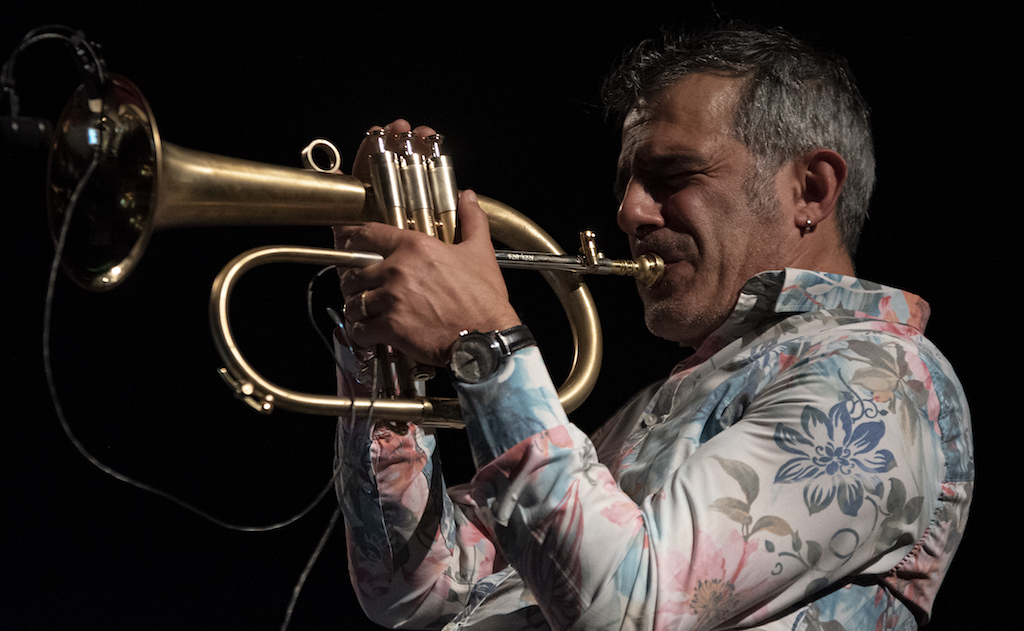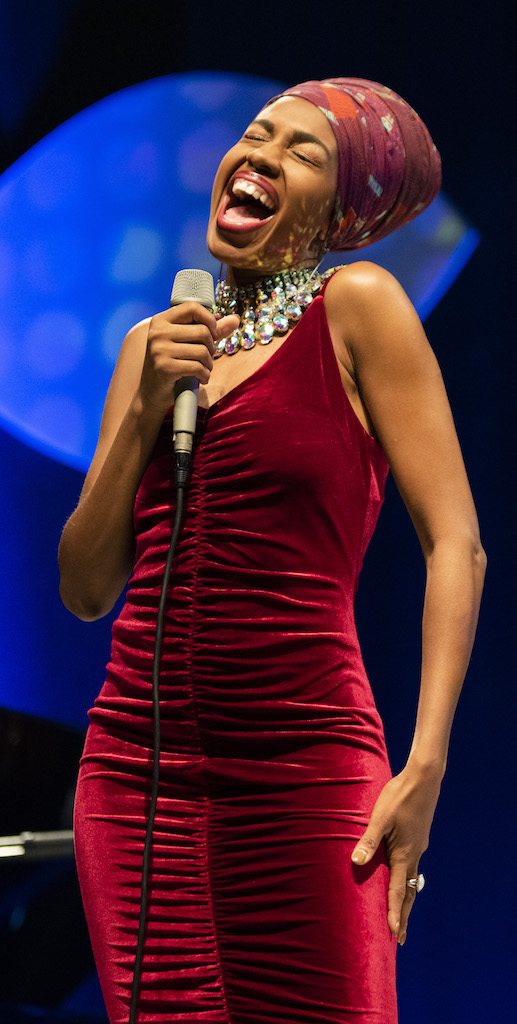These premier Serbian events are located only half an hour apart with just a three-day gap, making them a very convenient double treat for adventurous jazz travellers. Both featured top grade programmes of international and talented local bands with the bonuses of remarkably low ticket prices and expert, light-touch organisation. Each presented two-to-five nightly concerts supplemented by a variety of daytime and early evening panel discussions, book and CD launches, photo exhibitions and, at Pancevo, midnight jam sessions.
Belgrade had an enjoyably challenging 27 concerts over seven days (22-28 October). The Mingus Big Band was cannily paired with the Charles Lloyd Kindred Spirits quintet for one truly outstanding double bill of US stars. The Mingus ensemble was packed with brilliant soloists playing such classics as Gunslinging Bird, Fables Of Faubus and the valedictory Goodbye Porkpie Hat and Goodbye Eric. Lloyd’s set was deeply explorative on some lovely low-paced ballads until his new guitarist, Marvin Sewell, let rip with a memorable blues feature recalling Big Joe Williams at his most exciting and creative.
Another concert shared vocalists Dianne Reeves performing standards impeccably with the more advanced and equally compelling Tanya Balakirskaya and her Russian compatriots the Dmitry Ilugdin Trio. The other singers at the festival were Jazzmeia Horn (again on standards to showcase her beautiful voice) and the Canadian Laila Biali Trio (rather more mainstream with several pop covers). There was a British common thread to the concert split between trumpeter Henry Spencer & Juncture (with the outstanding Ant Law on guitar) and Steve Coleman & Five Elements. The veteran American altoist was very much at home with young British modernists and the rapper Kokayi.
France was strongly represented by the Henri Texier Sand Woman quintet (with remarkable energy and drive from the veteran bassist and his young band) and the exciting punk jazz of violinist Theo Ceccaldi’s Freaks sextet. The festival’s pan-European approach was also demonstrated by cutting-edge groups from Belgium (Flat Earth Society), Poland (Maciej Obara Quartet), Italy (Francesco Diodati Yellow Squeeds), Israel (Gilad Hekselman Trio), Austria (Shake Stew), Portugal (Joao Mortagua ‘Axes’), Norway (Ketil Bjornstad) and Germany (Michael Wollny Trio and Max Andrzejewski’s Hutte).
Serb-led groups maintained the high professional standards for which this festival is noted. The Nicolov-Ivanovic Undectet featuring Magic Malik on flute and wordless vocals impressed on a programme of ambitious originals with a broad range of jazz and world music influences. Three bands shared the stage with different approaches to contemporary Serbian jazz. The Dragon’s Fuel quintet were free and creative, the Rastko Obradovic Quartet had a fresh take on the sax and rhythm formula and the Milan Stanisavljevic Quintet did not stray far from modern mainstream but did so with admirable inventiveness.
All in all, the presentation of established stars and young experimenters was enjoyable and musically satisfying and bodes well for the festival’s future.
Although shorter than Belgrade, the Pancevo festival offered 11 concerts over three evenings (31 October to 2 November) and was no less appealing. Everything happened in the same cultural centre venue with the benefit of convivial late night hangs.

Top marks went to a couple of outstanding star attractions. The Cross Currents Trio (Dave Holland, Chris Potter, Zakir Hussain) were quite brilliant for their empathetic interplay and imaginative soloing. The Charles Tolliver All Stars played exciting, hard-driving music in the Blue Note tradition with especially fine solo input from the leader, Jesse Davis (sax) and Keith Brown (p). The Paolo Fresu Trio performed at the same sublime level on a programme of attractive songs associated with Chet Baker, an early influence on Fresu.
The Shay Hazan Quintet from Israel were hampered by a late arrival and a short rescheduled appearance but they played superbly in difficult circumstances. The Austrian Little Rosie’s Kindergarten large ensemble, including three saxes, two violins and a pair of excellent female singers, were entertaining, original and very popular.
Serbia produced the excellent Dragan Calina Quartet, the Ming Quartet of young female singers and several appearances by combos of students and tutors from Belgrade’s music school.
















